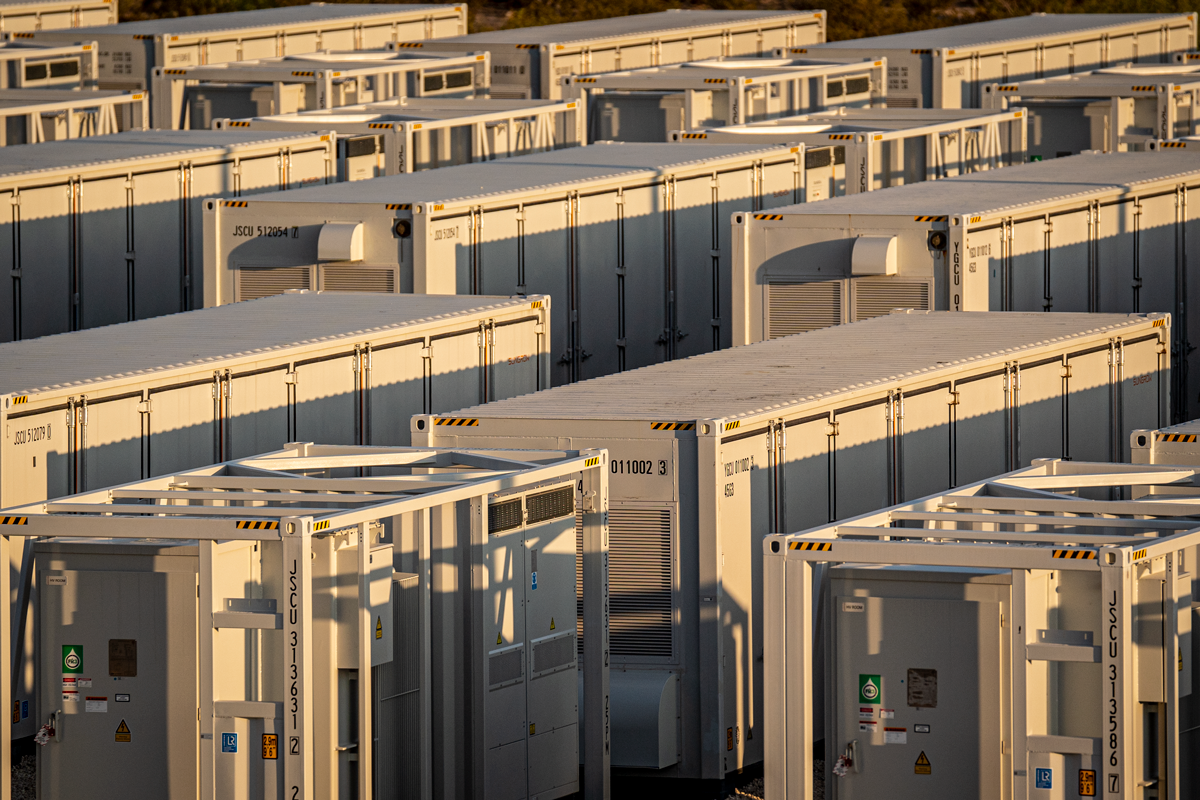A look at 50 Years of the OTC in Houston
Published May 03, 2019 by Lou Ann Duvall
The Offshore Technology Conference (OTC), the industry’s largest equipment exhibition, is celebrating it’s 50th anniversary in Houston. Since 1969, OTC has been recognized as an opportunity for energy professionals to exchange ideas and opinions to advance scientific and technical knowledge for offshore resources.
The Partnership had the opportunity to chat with the current OTC Board of Directors chairman, Wafik Beydoun, about why Houston remains the conference's host city and what the future holds for the mega event. Beydoun has more than 30 years of experience in the upstream oil and gas sector in leadership and technical positions in the U.S., the U.K., France, Angola and the UAE.
OTC is celebrating 50 years in Houston. How has the conference—and the oil and gas industry itself—evolved over the past 50 years?
OTC has always been a technically focused conference providing a platform for companies to showcase their technology as it relates to all forms of energy. These forms of energy have, of course, evolved as well as the technology around them. For example, we have added a marine renewables focus this year to highlight the ever-changing landscape of offshore activities with global experts who will discuss the role renewable energy will play in the future of offshore, including advancements in wind, hydrokinetic and gas hydrates.
A drilling perspective may help capture how technology has evolved these past 50 years. When OTC held its first event in 1969, offshore water depth drilling limits were around 300 feet. Now, drilling rigs go deeper than 10,000 feet of water depth. These deeper drilling depths accompanied by more demanding conditions are balanced while still operating in more environmentally sensitive and harsh environments. Alongside these challenges is an ever-present drive to increase safety while delivering shareholder returns. The extended low-price commodity environment has increased the need to maximize drilling efficiency while reducing rig operating costs to make offshore drilling more competitive as a source for energy supply. To address the forthcoming needs of drilling contractors and operators in this evolving environment, rigs of the future will need to embrace new technology advancements that improve drilling efficiency and safety, while reducing costs. Key advancements will include real-time drilling performance optimization, equipment condition monitoring, automation, safety and reliability enhancements.
Why does OTC feel it’s important to host such a significant event in Houston?
As you know, Houston is considered the Energy Capital of the World with more than 500 oil and gas E&P firms, hundreds of firms providing supporting activities and the Energy Corridor where companies in both the energy and non-energy sectors have significant operations. Houston has nine refineries producing more than 2.3 million barrels of crude oil every day. Furthermore, OTC is as much a local conference as it is an international one. Since Houston is at the forefront of both global and domestic investments in energy, especially in the offshore sector, we think it is the perfect place to host OTC.
The City of Houston has so much to offer, and OTC makes a significant impact to Houston as well. Since 1969, OTC has generated more than $3 billion in additional income for the city. OTC also hosts an annual event, which has donated a total of $1.7 million to charitable organizations over the past eight years. And, local high school students are participating in the advancement of scientific and technical knowledge by solving real-world energy challenges. Via the OTC Energy Challenge, students present their suggested solutions, and a panel discussion allows the participants to learn more about potential STEM careers. Plus, industry representatives learn more about what drives our future generation.
Can you give us a little background about OTC over the years?
The first Offshore Technology Conference was held in May 1969 in Houston, Texas, and was successful beyond expectations. It had 2,797 attendees, 112 papers presented and 368 exhibiting companies. OTC has been with Houston each year since, with significant growth in size and worldwide participation, thanks to our industry partners and Houston. Now the conference sees more than 60,000 delegates from more than 100 countries with more than 2,000 exhibitors representing at least 40 countries. In fact, in 2018, 25% of people who attended OTC were from outside the U.S. In 2019, we will celebrate OTC’s deep commitment to the people and companies who have helped us reach the 50th anniversary milestone. Acknowledging the challenges, best practices and cutting-edge technologies of the past leads us to explore how new technologies are anticipated to change the landscape for generations to come.
As the industry continues to evolve and digitize, what are some of the biggest changes you have seen at OTC over the years?
Digitalization, automation and machine learning have already started to change the industry and will continue to do so. Especially in light of the energy industry emerging from the recent downturn, artificial intelligence has emerged as one of the most transformative and potentially disruptive technology areas. For example, AI and machine learning are being employed to enhance 3D/4D seismic interpretation, help improve permeability and productivity estimation, allowing real-time monitoring and interpretation of formation data, predicting risks and enhancing data analytics.
What are the greatest opportunities for the oil and gas industry right now?
OTC’s 50th anniversary will set the stage for the next 50 years of the energy sector. Floating wind turbines are the next frontier in renewable energy. Robotic technology, smart materials, artificial intelligence and machine learning are already gaining traction within the industry, making it safer, more effective and efficient. For example, robotic technology is making impactful contributions to the offshore energy industry, enabling safe operations at low cost with applications ranging from drilling, inspection, sensors and data processing. Smart and nano-materials are disrupting the oil and gas industry, from coatings to polymers to cements that are enabling step changes in performance.
Additionally, renewable and alternative energy are already changing the energy landscape on a global scale. By the end of this year, the global market for renewable energy is expected to be $778 billion. By 2050, solar power would likely be in the top tier of energy sources, and Europe and North Africa could run vehicles on 100% renewable energy. These changes will not only affect where and how energy is produced and consumed, but will impact future careers as well.
What are some of the innovations you think we can expect to see over the next 50 years?
Beyond what’s already been mentioned regarding AI, machine learning and robotics, advances in drilling technologies are another big category. We are starting to see advances in bit and non-rotary drilling technologies, hydraulics and well control, and downhole measurements and data analytics.
From a renewables standpoint, the development of marine and hydrokinetic (MHK) energy will help meet local power demands and reduce the cost of energy for coastal communities. In addition to applying lessons learned and standards developed in the offshore oil and gas industry, new tools and technologies are being developed to make MHK energy cost competitive and ensure its place in the worldwide power generation fleet.
We are also poised to see an expanded role of women in the industry. Different perspectives and experiences are an untapped resource for global competitiveness in the industry.
Lastly, the North American offshore deepwater basins have been among the most active and successful in recent years, and we are seeing rapid growth in wind energy activities offshore in the U.S.
This is clearly a significant event for the global oil and gas industry. Why should the average consumer who isn’t in the industry pay attention to OTC this year?
Though the average consumer may not have an interest in the details of the technical conferences, the technologies being discussed and developed by companies and individuals at OTC represent the forefront of advancements in the energy industry, which provides power to nearly everything consumers do.
Also, there are a few local beneficiaries and partnerships with OTC, which Houston residents may have an interest in. Spindletop Charities is the official beneficiary for OTC 2019 who supports at-risk youth, and we have partnered with United Against Human Trafficking to increase awareness of human trafficking and improve the Houston community. The OTC Energy Challenge is a high school competition where more than 70 local students work to solve real-world energy challenges, and are presenting their solutions during the conference on Tuesday, May 7.
In terms of networking and collaboration opportunities for industry professionals, OTC is the premier offshore energy conference that provides attendees access to leading-edge technical information, the industry’s largest equipment exhibition and valuable new professional contacts from around the world. OTC gives professionals the opportunity to continuously improve and learn from others’ work, whether that’s directly tied to their sector in the energy industry or another.
 The Houston Report
The Houston Report




















